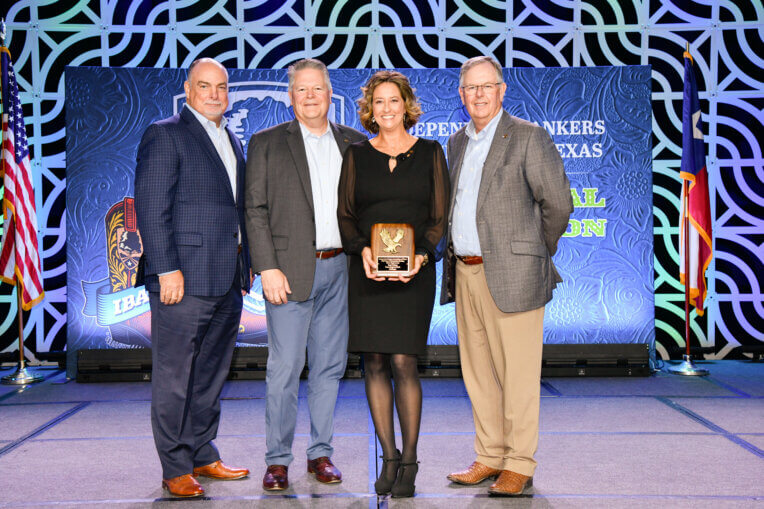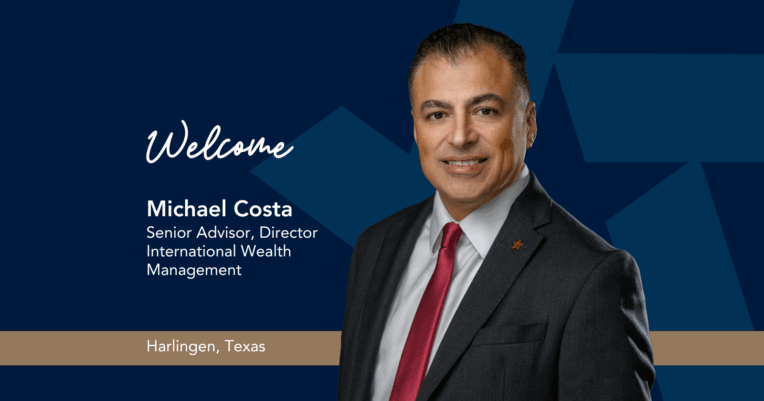Key Takeaways:
- As artificial intelligence progresses in sophistication and accessibility, criminals can cut the time it takes to create sophisticated deep fakes.
- Texas ranked third in the nation in elder fraud reports and elder fraud losses in 2023.
- If anything makes you suspicious, say ‘Hang on; let me call you right back,’ and then hang up and call your contact back directly, with a number you know, not with redial.
- Double-checking another source of information, hanging up and calling back, or calling your community banker need to be standard practices.
- Minutes can matter when your money is on the line, and ‘the people you know’ at TRB recommend establishing a relationship with your community bank to take advantage of that personal connection.
Think It’s Elder Fraud? Ask ‘The People You Know’
With the rise of artificial intelligence, scammers now have the ability to create realistic deep fakes, making it easier to impersonate loved ones or trusted figures in order to manipulate you into sending money or sharing sensitive information.
In this rapidly evolving landscape, ‘the people you know’ at Texas Regional Bank are stressing the importance of relying on human relationships and instinct to recognize and avoid potential fraud. By maintaining personal relationships with your bank and clients, and staying informed, you can better protect yourself from the growing threat of AI-driven scams and other fraudulent schemes.
Deep Fakes: Elder Fraud
Imagine you are travelling out of town, and your grandparents are sitting at home, when their phone rings and they happily begin speaking with you—their favorite grandchild—over a video call. They see your familiar face and hear your familiar voice tell them that you’re in trouble and you need some money wired quickly so you can get home. You tell them exactly where to wire the money, and they follow your instructions diligently so they can help you. Except it’s not you. It wasn’t ever you, and now your grandparents have become the unwitting victim of fraud.
Features of Elder Fraud
- As artificial intelligence progresses in sophistication and accessibility, criminals can cut the time it takes to create sophisticated deep fakes.
- Soundtracks and videos that seem to be your loved one asking for help can be very persuasive, said Brad Freudenberg, TRB’s Chief Technology Officer. “You’re seeing someone on the screen that looks and sounds like your loved one. It can be difficult to recognize a fake,” he added.
- While this example was executed through a video call, using AI software to impersonate a loved one, many elder fraud scams are perpetrated through phone calls, where fraudsters impersonate customer service agents in a call center.
- Whether impersonating a loved one or a customer service agent from one of your service providers, a fraudster will attempt to convince you to transfer money or they’ll ask you to provide personal information, like account login credentials, access codes, account numbers, or even social security numbers, so they can log into your accounts themselves.
Elder Fraud Prevention Facts
- Texas ranked third in the nation in elder fraud reports, over 7000, and elder fraud losses, over $278 million, according to the FBI’s Internet Crime Complaint Center’s (IC3) 2023 Elder Fraud Report, released this April.
- In the same report, IC3 states that elder fraud is on the rise, increasing over 14% last year, but the worst news is only around 50% of fraud reporters include their age, so the real elder fraud numbers are likely to be much higher than can be confirmed.
- Elders are targeted for a number of reasons:
- higher net worth or life savings
- more isolated in their communities
- less-technologically savvy or less-aware of certain technologies
- less-frequently use online banking
- overly trusting and less willing to report
- “It’s important to trust your instincts. If anything makes you suspicious, say ‘Hang on; let me call you right back,’ and then hang up and call your contact directly and immediately. Criminals can’t yet intercept that,” said Freudenberg. “You can’t trust caller ID anymore today, so it’s important to have someone you trust that you can call directly.”
Cesar Suarez
You should always be able to pick up the phone and call your bank, or walk in the door, and easily access the support and education you need to keep your hard-earned money safe.
Lean on Human Relationships
Nothing will take the place of reasonable common sense, but continued learning and education are necessary to remain prepared for the constantly evolving and increasingly sophisticated fraud threats we face.
That gut instinct will continue to be important, Freudenberg emphasized. Deep fakes frequently fall into just a few general categories:
- a trusted source supposedly promising to trade your cash for Bitcoin or promising to pay you back for gift cards,
- a familiar client or vendor purportedly asking you to reprocess a separate payment or change payment accounts or details,
- or a loved one claiming they are in urgent and desperate trouble and needing a wire transfer.
The scams will continue to become more advanced, and so will the complexity of their social engineering methods. Double-checking, calling back, or calling your community banker will need to be standard practice. “We empower our clients with information and then back them with our experience, so they have support and answers when they have questions or suspicion about a circumstance,” Freudenberg said.
TRB’s Chief Banking Officer Cesar Suarez added “Having a relationship with a banking partner you can trust can not only help you if you fall prey to a scam, but also can help you prevent it by providing education, tools, and resources that help you identify a potential scam as it comes your way.”
One advantage to the community bank model is clear: “Community banks are set up to respond to fraud quickly – and, when something happens, speed is really important,” Suarez said. “Those personal relationships at your bank in your community can prove crucial when special attention is needed.” Minutes can matter when your money is on the line, and ‘the people you know’ at TRB recommend establishing a relationship with your community bank to take advantage of that personal connection.
Think It’s Fraud? Ask ‘The People You Know’
The potential for sophisticated scams, including deep fakes, is becoming an ever-present threat. However, the solution to combating these schemes lies not only in technology but in human instincts and relationships. ‘The people you know’ at TRB emphasize the importance of trusting your gut, verifying suspicious requests, and maintaining strong personal connections with your community bank. By combining common sense with human communications, individuals can protect themselves against AI-driven fraud while also benefiting from the personalized support that only community banks like TRB can provide. In an increasingly complex digital world, vigilance, trust, and personal banking relationships remain key to safeguarding hard-earned assets.






